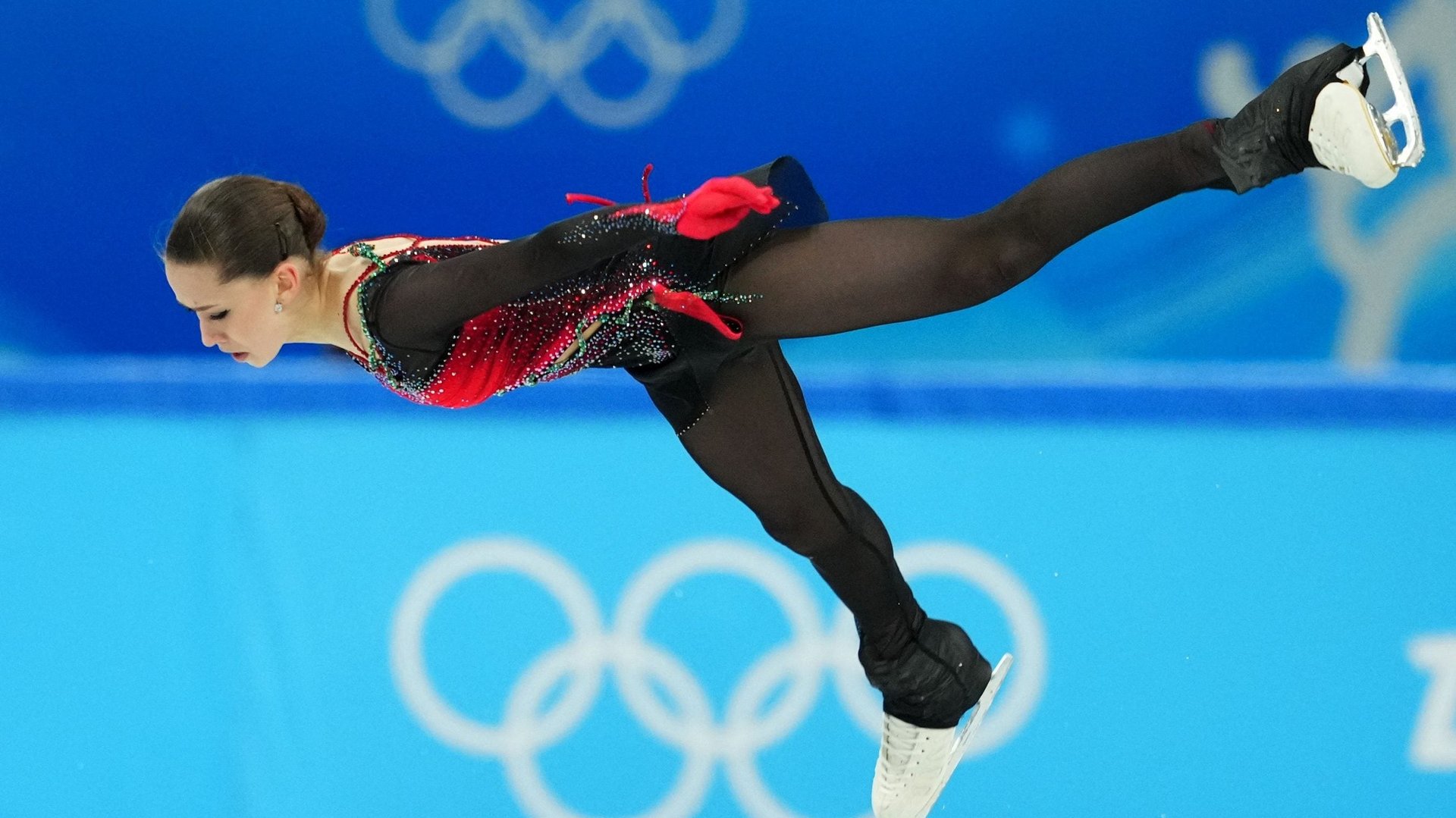Another Winter Olympics, another Russian doping scandal
The teenage Russian skater at the center of a doping storm at the Winter Olympics tested positive for a banned substance before the Games began.


The teenage Russian skater at the center of a doping storm at the Winter Olympics tested positive for a banned substance before the Games began.
Kamila Valieva, 15, was part of the Russian Olympic Committee (ROC) team that won the figure skating gold on Feb. 7. On Feb. 11, it emerged she had tested positive for heart drug trimetazidine, which can boost athletes’ endurance and blood efficiency, in December 2021. The International Olympic Committee (IOC) is refusing to award any medals until the legal process is resolved.
Today (Feb. 14), the Court of Arbitration for Sport (CAS) ruled to let her compete at the ongoing Olympics, mainly because of the “exceptional circumstances” of her age, and because she didn’t have time for due legal process before the Games. She will participate in the women’s singles competition tomorrow, for which she is among the favorites. If she finishes in the top three, the IOC will not award a medal or even hold a ceremony until the doping situation has been resolved.
This is far from Russian sport’s first alleged doping transgression, despite the Kremlin’s howls of protest in Valieva’s case. Russia isn’t allowed to compete in any global sporting event this year under its own flag, although its athletes can represent their Olympic committee.
How did Valieva compete in the Olympics team figure skating event?
The International Testing Agency (ITA), while emphasizing that Valieva is a minor whose name would not normally be disclosed publicly, has clarified the timeline after media reports started doing the rounds:
- Dec. 25, 2021: Valieva’s sample collected by the Russian Anti-Doping Agency (RUSADA) during the 2022 Russian Figure Skating Championships in Saint Petersburg
- Feb. 7, 2022: Team skating event at the Beijing Olympics 2022
- Feb. 8, 2022: The World Anti-Doping Agency-accredited lab in Stockholm reported that the sample contained trimetazidine. She is provisionally suspended by RUSADA with immediate effect, and won’t be able to compete in any further events in Beijing
- Feb. 9, 2022: Valieva challenges the imposition of the provisional suspension before the RUSADA Disciplinary Anti-Doping Committee and a hearing takes place. By evening, RUSADA lifts the athlete’s provisional suspension, allowing her to continue her participation in the Olympics.
- Feb. 10, 2022: “She is not suspended,” Russian figure skating federation spokeswoman Olga Ermolina says, offering no further detail.
- Feb. 11, 2022: ITA confirms the chronology of events. The IOC says it will make a decision before Valieva’s next scheduled skating event on Feb. 15.
Russia’s doping history
The Russian government has a reputation of backing systematic cheating, and setting up state-run programs to provide athletes with steroid cocktails to curb detection.
During the 2018 Winter Olympics in Pyeongchang, South Korea, Russian bobsledder Nadezhda Sergeeva was disqualified after testing positive for trimetazidine. She served an eight month ban and is competing in Beijing. At the 2018 games, Russian curler Alexander Krushelnitsky tested positive for a similar drug called meldonium, and was banned for four years.
Meanwhile, outside the Olympic village, the threat of Russia invading Ukraine looms. The Kremlin has stationed north of 100,000 troops on the Ukrainian border. US officials fear they could even invade before the Olympics ends on Feb. 20.
This post has been updated.